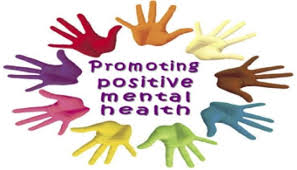- Understanding the Importance of Mental Health in Education
- The Current State of Mental Health in European Schools
- Key Strategies for Enhancing Mental Health and Well-being in Schools
- The Role of Erasmus+ Courses in Enhancing School Mental Health Initiatives
- Success Stories: European Schools Leading the Way
- Conclusion: A Call to Action for Educators and Professionals
Skills for Life: Improving Mental Health and Well-being in Schools

In recent years, mental health and well-being have become central to the educational landscape. As educators and professionals across Europe strive to create inclusive and supportive learning environments, it’s crucial to focus on equipping students with skills for life that extend beyond academic achievement. This blog explores strategies for improving mental health and well-being in schools and highlights the role of Erasmus+ courses in fostering these essential skills.
Understanding the Importance of Mental Health in Education
Mental health plays a pivotal role in the overall development of students. Research consistently shows that emotional well-being is closely linked to academic performance, behaviour, and social interactions. Schools are not just places for learning academic content; they are environments where students develop social skills, self-awareness, and resilience. Addressing mental health proactively can lead to healthier, more productive, and happier students.
The Current State of Mental Health in European Schools

Across Europe, there is a growing recognition of the need for comprehensive mental health support in schools. The COVID-19 pandemic has intensified this awareness, highlighting the impact of isolation, stress, and uncertainty on young people’s mental health. Educational institutions are increasingly called upon to integrate mental health education into their curricula and to provide robust support systems for students.
Key Strategies for Enhancing Mental Health and Well-being in Schools
1. Implementing Comprehensive Mental Health Education Programs
To foster mental well-being, schools should incorporate mental health education into their curricula. This involves teaching students about emotional intelligence, stress management, and healthy coping mechanisms. Evidence-based programs such as social-emotional learning (SEL) can be highly effective. SEL programs help students understand and manage their emotions, set and achieve positive goals, and establish and maintain positive relationships.
2. Creating Supportive School Environments
A supportive school environment is crucial for mental health. This means fostering a culture of respect, inclusivity, and safety. Schools can create such environments by promoting positive relationships among students and staff, encouraging open communication, and addressing issues of bullying and discrimination. Initiatives like peer support programs and mentorship schemes can also be beneficial. These programs create additional layers of support and foster a sense of community among students.
3. Training Educators and Staff
Educators and school staff play a critical role in identifying and addressing mental health issues. Professional development opportunities are essential to equip them with the skills and knowledge needed to support students effectively. Training programs should cover topics such as recognizing signs of mental health issues, providing appropriate interventions, and understanding how to connect students with external resources.

4. Involving Parents and Guardians
Parents and guardians are key partners in supporting student mental health. Schools should engage families through workshops, informational sessions, and regular communication about mental health resources and strategies. Collaboration between schools and families can create a more holistic support system for students.
5. Promoting Physical Health and Well-being
Mental health is closely linked to physical well-being. Encouraging regular physical activity, healthy eating, and adequate sleep can positively impact students’ mental health. Schools can integrate physical health initiatives into their programs, such as offering sports activities, healthy meal options, and educational resources on nutrition.
6. Utilizing Technology and Innovation
Technology can be a powerful tool in supporting mental health. Digital platforms can offer students access to mental health resources, self-help tools, and online counseling services. Schools should explore innovative technologies that can enhance mental health support and integrate them into their programs.
The Role of Erasmus+ Courses in Enhancing School Mental Health Initiatives
Erasmus+ offers a wealth of opportunities for educators and school staff to enhance their skills and knowledge in supporting mental health and well-being. These European programmes provide valuable training and resources that can be directly applied in educational settings. Here’s how Erasmus+ courses can contribute:
1. Professional Development
Erasmus+ courses offer specialized training on various aspects of mental health and well-being. These courses are designed to equip educators with the latest research, tools, and strategies to implement effective mental health initiatives in schools. By participating in these courses, educators can gain insights into best practices from across Europe and tailor them to their own school environments.
2. Collaborative Learning
One of the strengths of Erasmus+ is its emphasis on collaborative learning. Educators from different countries come together to share experiences and learn from one another. This exchange of ideas can lead to innovative approaches and solutions for improving mental health in schools.
3. Access to Resources and Networks
Erasmus+ provides access to a wide range of resources and professional networks. Educators can benefit from these resources to enhance their mental health programs and connect with experts and peers in the field. The networks formed through Erasmus+ can also offer ongoing support and collaboration opportunities.
4. Customizable Training
Erasmus+ courses can be tailored to meet the specific needs of educators and schools. This flexibility allows for the development of targeted programs that address the unique challenges and goals of each educational setting. Whether focusing on mental health awareness, intervention strategies, or creating supportive environments, Erasmus+ courses can be adapted to suit diverse needs.
Success Stories: European Schools Leading the Way
Several schools across Europe have successfully implemented mental health initiatives with the support of Erasmus+ programmes. These success stories highlight the impact of comprehensive mental health strategies and offer inspiration for other schools looking to enhance their approaches. For example, a school in Finland integrated a social-emotional learning program into its curriculum, resulting in improved student engagement and reduced behavioural issues. Another school in Spain developed a peer support network that significantly improved students’ mental health outcomes and fostered a more inclusive school culture.
Conclusion: A Call to Action for Educators and Professionals
Improving mental health and well-being in schools is a shared responsibility that requires commitment and collaboration from educators, school staff, parents, and policymakers. By implementing effective strategies and leveraging resources such as Erasmus+ courses, we can create supportive and nurturing environments that promote the mental health of every student.

As professionals dedicated to education and student well-being, it’s essential to stay informed and proactive in addressing mental health challenges. Embracing opportunities for professional development and learning from successful initiatives can drive positive change in our schools and ensure that we equip students with the skills for life they need to thrive.
For more information on how Erasmus+ courses can support your efforts in enhancing mental health and well-being in schools, visit our website and explore the range of professional development opportunities available.
